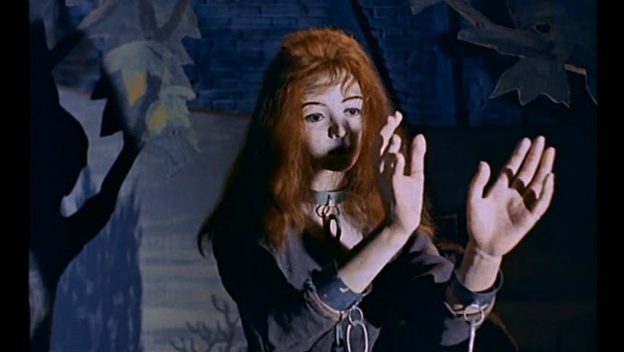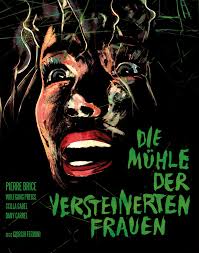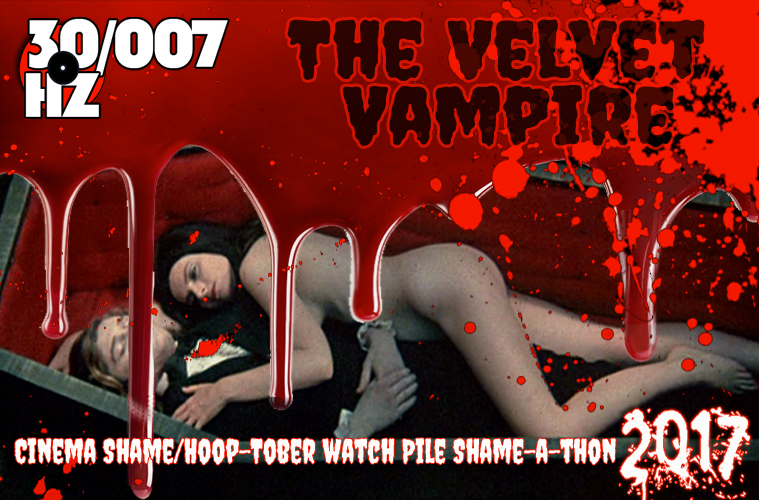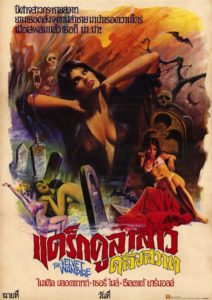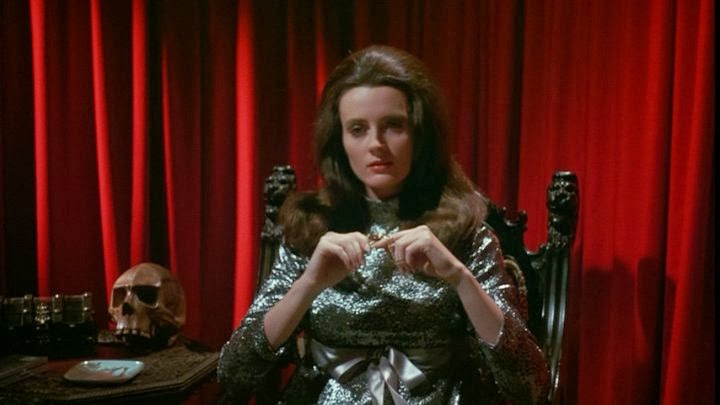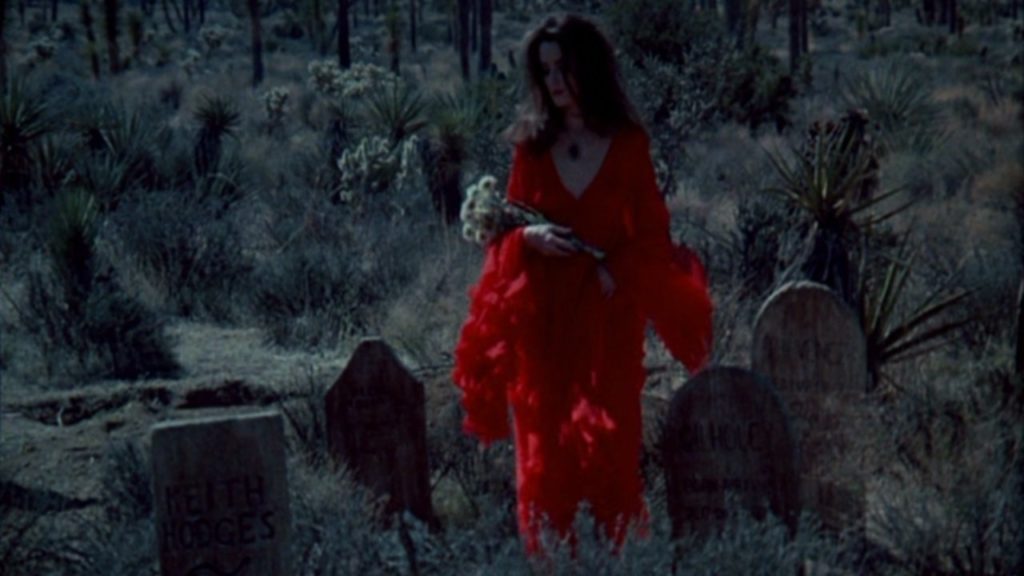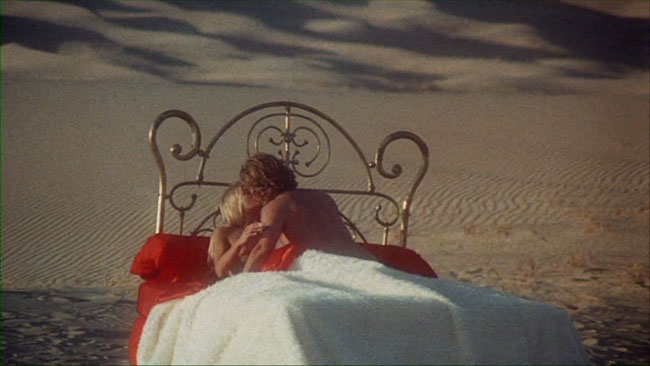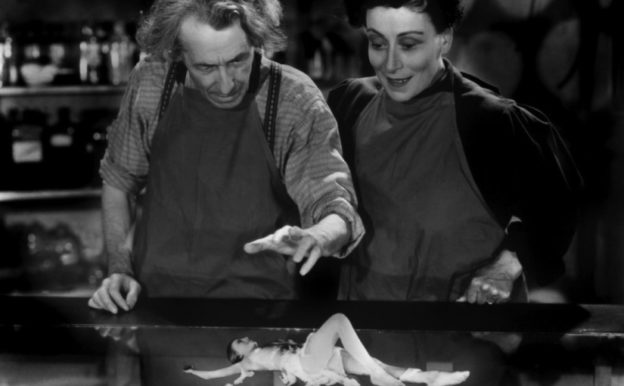
31+ Days of Horror. 33 Horror Movies. 33 Reviews. Hooptober Challenges and Bonus Tasks.
View my 2017 Cinema Shame/Hoop-Tober Watch Pile Shame-a-thon Statement here.
Nature of Mill of the Stone Women Shame:
Unwatched Double Dip! Mondo DVD & Subkultur Blu-ray
Hoop-tober Challenge Checklist:
Decade: 1960’s
Country of Origin: Italy
#4. Mill of the Stone Women

So far my picks for this year’s Shame-a-thon have been top notch entertainment. Four movies. Four keepers. I hope I’m not frontloading this marathon because that would make for a grueling final few weeks of horror movie viewing.
I purchased a DVD copy of Mill of the Stone Women from Mondo Macabro during one of their sales. Shortly thereafter, Mondo offered a great deal on the then OOP Subkultur Blu-ray. In addition to the improved transfer, the Subkultur disc offered a few different features to *totally* justify that unwatched double dip. Totally.
The Italian gothic shocker Mill of the Stone Women keeps the trend of top notch horror flicks going strong with a Hammer-style dose of brooding restraint and Grand Guignol. Allow me to pause one second here for a word from our sponsor.

Released the same year as Black Sunday, Mill of the Stone Women actually outgrossed Mario Bava’s classic in Italy. In the years since, Black Sunday has become an essential genre staple and Giorgio Ferroni’s film slipped into relative obscurity.
Released on August 30th, 1960, Mill of the Stone women became the first color film released in Italy, which is a useful anecdote for pub trivia and the offhand dropping of impressive film nuggets. But Mill offers even more fun oddities for posterity. In the opening credits, the film gives story credit to a book called Flemish Tales by Pieter van Weigen. As far as anyone knows, no such book exists.

The Story
Borrowing themes from House of Wax (1953), Mill of the Stone Women amplifies the horrific mental imagery of corpses imprisoned in a museum-like setting. A Dutch professor of fine arts and self-proclaimed “doctor” uses the blood from ill-fated women to repeatedly revive his terminally ill daughter. The victims become the centerpieces of his macabre, moving art installation.
In House of Wax, Vincent Price’s madman revives his corpses through painstaking recreation of lifelike detail. Attendees are meant to see a proximity of humanity in the wax figures. Professor Val on the other hand, turns his corpses into a legitimate, representational horror show, like Peter Pan’s Flight at Disney World gone horribly horribly wrong. The bodies are formed into horrific vignettes, rather than a reconstitution of their former selves or famous historical figures.
The haunting visages of the women create a prolonged, underlying sense of unease. The dead-eyes of dolls, the smoky complexions of burned or disfigured women. These images linger and fester just beneath the surface even when they’re not on screen. The psychological horror of Mill of the Stone Women isn’t easily put into words — but it is effective, often more so than the Hammer films which it is clearly emulating.

Though the film relies heavily on seasoned tropes of the genre — coffins, corpses, screaming vixens, mad science — the elements are woven and integrated so that they don’t play like a “how to do horror on a budget” playbook. It’s not that you don’t see the seams of Mill of the Stone Women, it’s that they don’t amount to anything that feels traditional. The film casts a certain enveloping spell. It’s not terror, per se, but an investment in the face-value quality of the horrific imagery.
It’s a skill the great horror filmmakers of the 1950’s and 1960’s had to have in their bag of tricks in order to convey more horror than they were necessarily able to show on screen. That which was felt became more potent than that which was seen. Watch The Innocents, Black Sunday or Carnival of Souls if you need to revisit some concrete examples. Mill of the Stone Women is unique because none of its magic was lost when color shed some light on the darker corners of the film. Less was often more in terms of graphic content and color, but Ferroni’s film plays with the texture of a black and white film — and I mean this in the best possible sense.

Audio/Visual notes:
After a quick comparison of the Mondo DVD and the German Subkultur Blu-ray, there’s not a huge amount of gain in the crispness of the image — but rather the vibrancy of color on a largely grey palette. Note the above image. That yellow really pops on the Subkultur, but doesn’t have the same visual impact on the DVD. If you love Mill of the Stone Women, seek out the Subkultur, but you won’t be disappointed with the Mondo DVD. But good luck tracking down a reasonably priced copy of either.
Final Thoughts:
I’m going to stop just short of saying that I loved Mill of the Stone Women, but I am compelled to watch it again no more than 24 hours after my first viewing. That’s saying something as I’m always inclined to move on to the next new unwatched conquest. It’s just got a quality that belongs to a certain era of horror filmmaking. It’s called effective restraint and patience. Ferroni stared down “plodding” and “pedantic” and weathered poor contemporary reviews to produce a brand timeless terror that likely plays better for classic film fans in 2017 than it did to contemporary audiences in 1960.
30Hz Movie Rating:
Availability:
The OOP Mondo Macabro DVD can still be purchased for a hefty price at Amazon. The German Subkultur Blu-ray also seems to be OOP. Your best solution for watching Mill of the Stone Women right now seems to be Youtube.
.
2017 Cinema Shame/Hoop-Tober Watchpile Shame-a-thon
#1. Caltiki The Immortal Monster (1959) / #2. The Devil Doll (1936) / #3. The Velvet Vampire (1971) / #4. Mill of the Stone Women (1960)
2016 Cinema Shame/Hoop-Tober Watchpile Shame-a-thon
#1. Vampyros Lesbos / #2. A Chinese Ghost Story / #3. The Haunting of Morella / #4. Delirium (1972) / #5. A Lizard in a Woman’s Skin / #6. She-Wolf of London / #7. Son of Frankenstein / #8. Killerfish / #9. The Bride of Re-Animator / #10. A Bay of Blood / #11. The Seventh Victim / #12. The Fly (1958) / #13. The Fly (1986) / #14. Deep Red / #15. Dracula’s Daughter / #16. Day of the Animals / #17. The Unknown / #18. Kuroneko / #19. Komodo / #20. Tremors / #21. Tremors 2 / #22. A Nightmare on Elm Street / #23. A Nightmare on Elm Street 2: Freddy’s Revenge / #24. A Nightmare on Elm Street 3: Dream Warriors / #25. Tenebrae / #26. Salem’s Lot / #27. Veerana / #28. House of Wax / #29. The Bird with the Crystal Plumage / #30. Dead and Buried / #31 Ghost and Mr. Chicken

